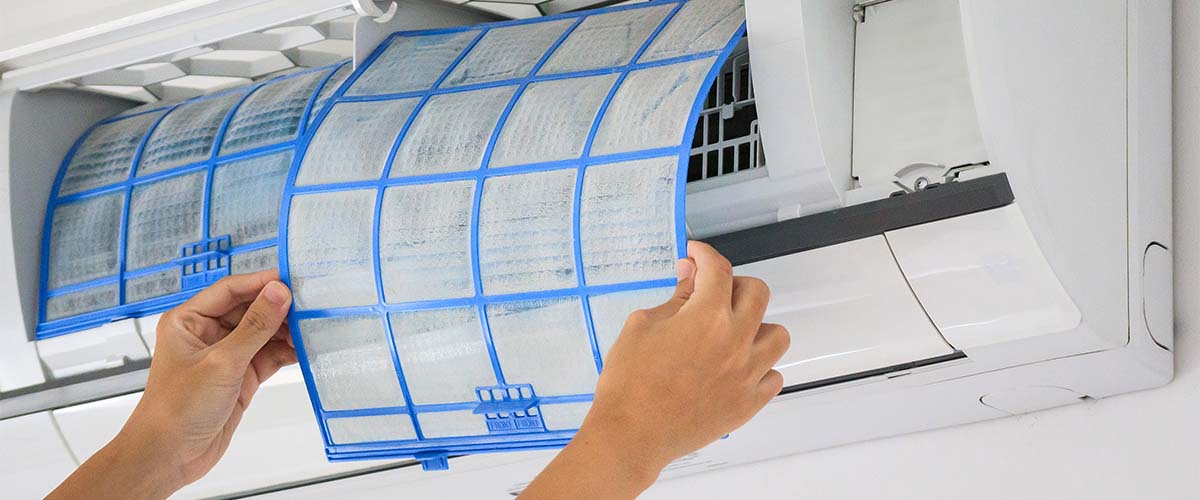If your AC is running but the house still feels sticky—and the vents blow out air more like a lukewarm porch breeze than a cool bedroom nap—you’re probably dealing with a dirty system. I’ve stood in hallways with a hand over the vent, thinking, “It’s on. Why isn’t it cooling?” Most of the time, clogged filters, dusty coils, or a slimy drain line are to blame. The good news: air conditioner cleaning can restore that crisp whoosh in an hour or two. With some patience, you can do it yourself.
Why Does My Air Conditioner Need Cleaning?
Air conditioners cool by moving heat, and dirt slows the process. Inside, your air handler pulls warm, humid air across the evaporator coil. If the coil is covered in fuzz or pollen, less air passes through—and sometimes the coil even freezes into a block of ice.
Outside, the condenser coil dumps heat back into the air. When it’s caked with lint, leaves, or dust, it can’t release heat efficiently. The system runs longer, your bills climb, and the house still feels warm.
A clogged condensate drain only adds to the trouble. Water collects in the pan, musty odors develop, and sometimes the safety switch shuts the system down. I’ve opened units that smelled like a damp basement, only to find the fix was simple: clear coils, a flushed drain, and a fresh filter.
Air Conditioner Cleaning Tips
Power off first: Shut off the AC at the thermostat and switch off the breaker or outdoor disconnect. Safety first—capacitors store electricity even when the unit’s off.
Filter: Pull out the filter and hold it up to the light. If you can’t see through it, replace it. A pleated MERV 8–11 filter usually works best for most homes. Write the replacement date on the frame so you’ll know when it’s due again.
Coil cleaning: Remove leaves and grass by hand or with a soft brush. Rinse the condenser fins from the inside out with a garden hose on low pressure. You’ll see muddy water drain away.
Avoid pressure washers—they flatten fins like a bad haircut. If the fan shroud comes off easily, lift it carefully and rinse downward along the coil.
Drain line: Find the PVC drain line at the indoor unit. Open the cleanout cap and pour in a cup of plain white vinegar (or a 50/50 vinegar-water mix). If it’s clogged, connect a wet/dry vacuum at the outdoor end to pull out algae and debris.
Indoor coil: If visible behind a service panel, spray with a foaming no-rinse coil cleaner made for AC systems. Let it foam and drain into the pan. A metallic-soap smell is normal.
Test run: Turn the unit back on and run it for 15–20 minutes. Air from supply vents should feel cooler than air at the return grille. Outside, the copper line should sweat lightly and feel cold.
Air Conditioner Maintenance
Your AC is like a car that runs all summer—it needs regular care.
- Check filters monthly. In humid places like Milledgeville, GA, pollen clogs filters quickly. Replace every 30 days in peak season.
- Keep space clear. Maintain 2–3 feet around the outdoor unit. Trim shrubs, rake leaves, and keep mower clippings away.
- Rinse coils every 4–6 weeks. A quick rinse prevents grime buildup and costly repairs.
- Flush the drain line monthly. Pour in a cup of vinegar. If you have a float switch, test it by lifting the float—your system should shut off.
- Vacuum supply and return grilles. Clear dust boosts airflow and comfort.
- Annual deep cleaning. Remove panels, spray coil cleaner, and gently brush the fins. If you’re not comfortable, schedule a tune-up with a pro.
- Thermostat habits. Avoid frequent setpoint changes. Run the fan on “Auto” to reduce humidity—“On” recirculates damp air when the compressor isn’t running.
When To Call Professionals
Some issues mean it’s time for a technician:
- Ice on coils or refrigerant lines. Thaw the system and call—this often points to airflow or refrigerant problems.
- Short cycling or loud noises. Buzzing or clanking usually means failing capacitors or motors.
- Warm air from vents. If the outdoor unit is hot and the fan’s running, the compressor may be overheating.
- Overflowing drain pan. If vinegar or a vacuum doesn’t clear it, the clog is deeper.
- Persistent musty smells. Could be microbial growth in the coil cabinet or ducts—pros have safe cleaners.
- High energy bills. Rising bills without better cooling often signal airflow issues, weak capacitors, or refrigerant problems.
An annual tune-up pays for itself: proper refrigerant charge, deep coil cleaning, drain service, electrical checks, and a heads-up before parts fail on the hottest weekend.
Common Questions
Vinegar or bleach for the drain line?
Vinegar is safer for fittings and air quality. If using bleach, dilute it—and never mix with other cleaners.
Why does my AC freeze up?
Usually, poor airflow from dirty filters/coils or low refrigerant. Thaw fully, check airflow, and call a pro if it happens again.
Is a higher MERV filter better?
MERV 8–11 works best for most homes. Higher ratings can restrict airflow unless the system is designed for them.
With a clean air conditioner, you’ll hear a smooth, steady hum, feel cool air on your forearm, and watch the thermostat quietly hold steady. That’s a good summer day.



